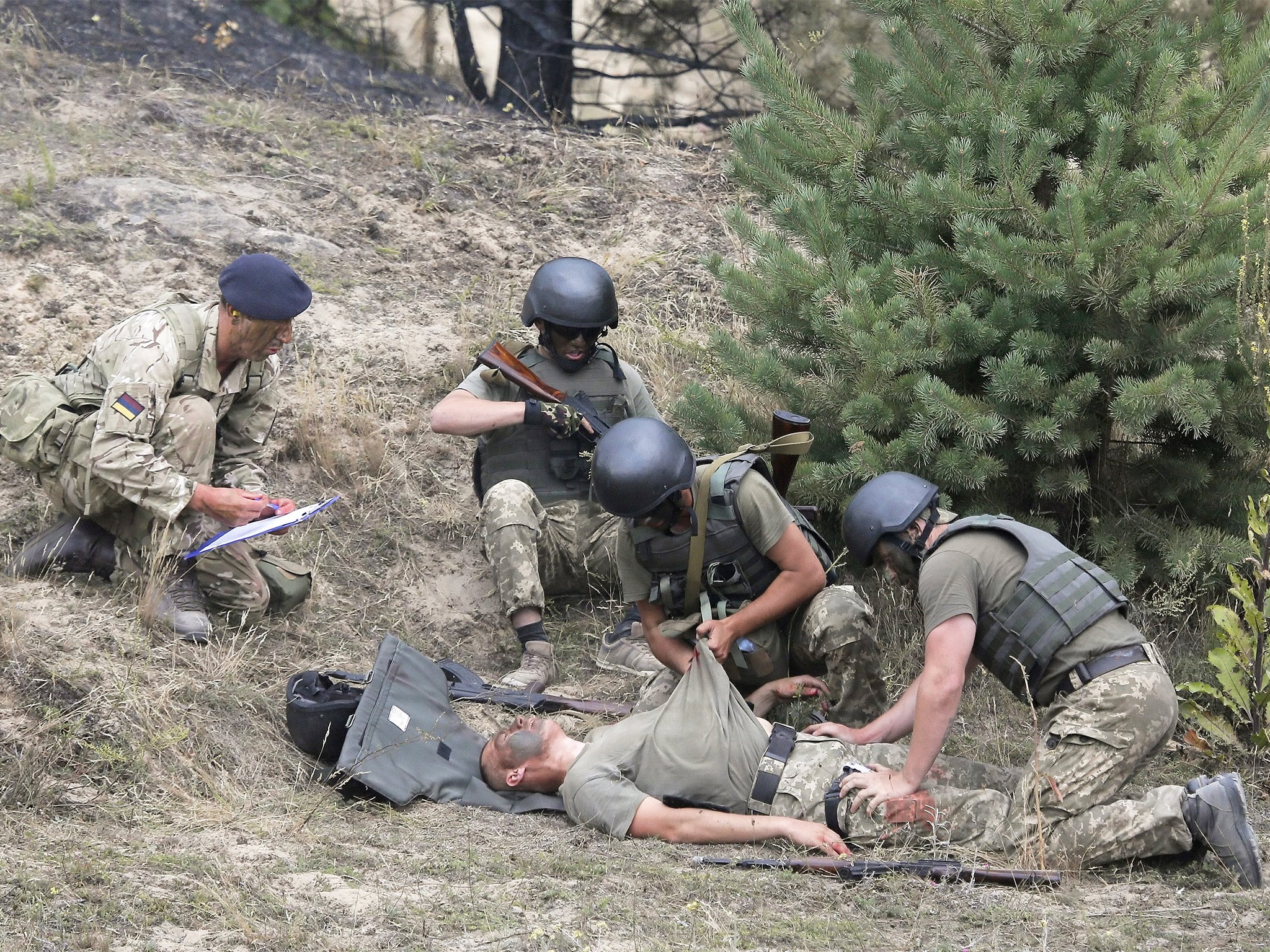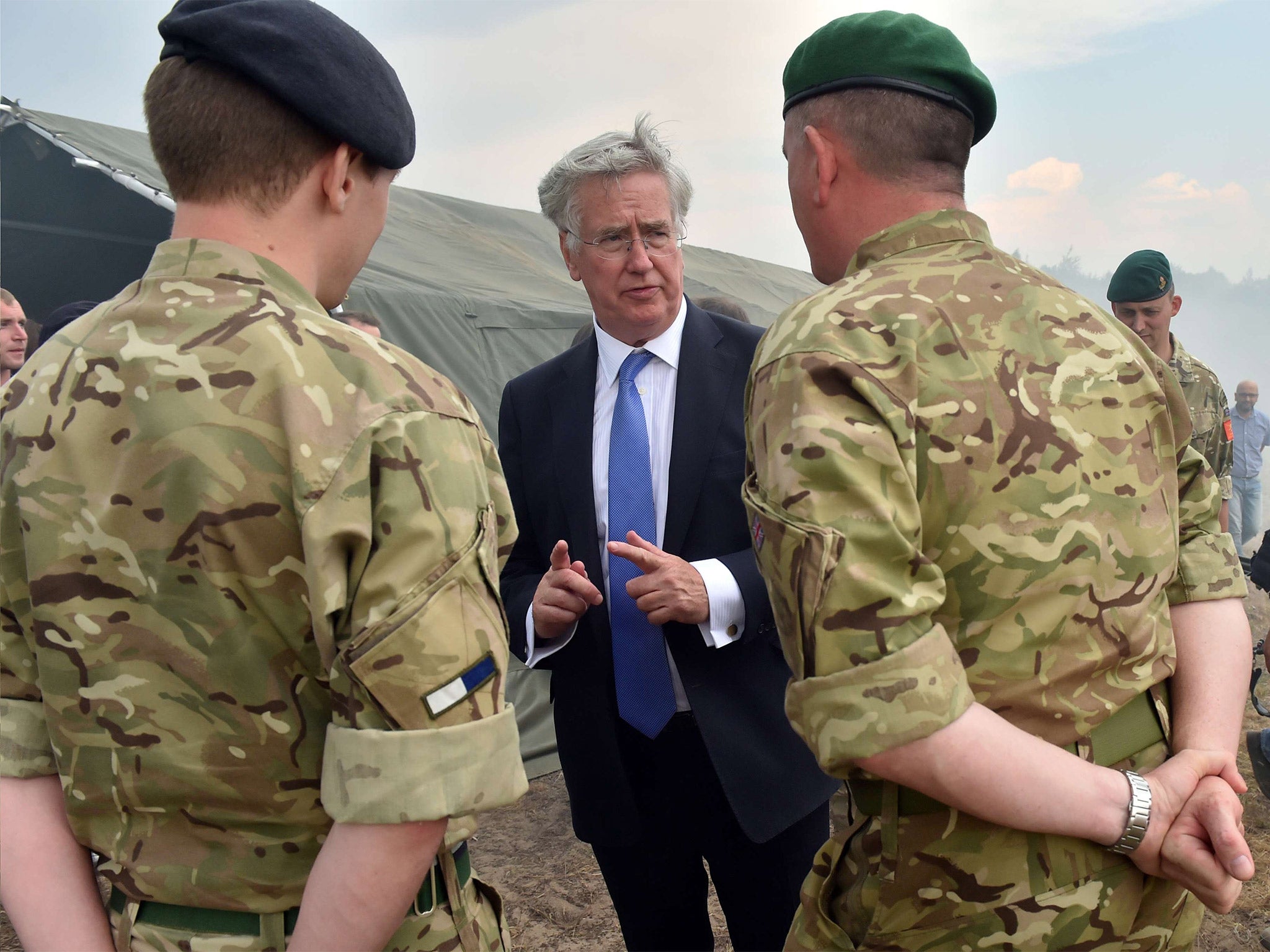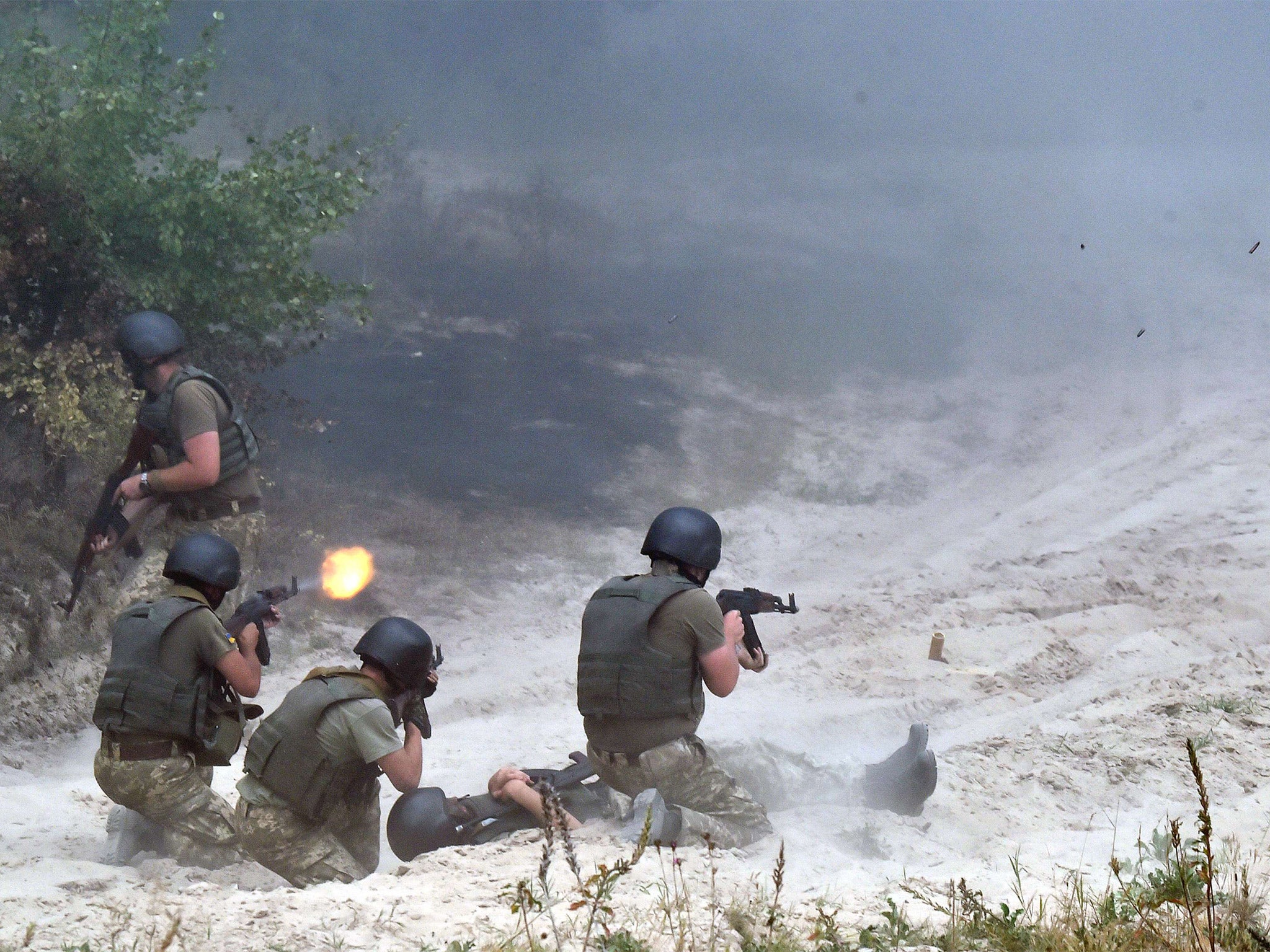Can Britain turn Ukraine's inefficient, corrupt military into a fighting force?
Ukrainian volunteers are being trained to fight by British soldiers, observes Kim Sengupta at the Teterivka base

Your support helps us to tell the story
From reproductive rights to climate change to Big Tech, The Independent is on the ground when the story is developing. Whether it's investigating the financials of Elon Musk's pro-Trump PAC or producing our latest documentary, 'The A Word', which shines a light on the American women fighting for reproductive rights, we know how important it is to parse out the facts from the messaging.
At such a critical moment in US history, we need reporters on the ground. Your donation allows us to keep sending journalists to speak to both sides of the story.
The Independent is trusted by Americans across the entire political spectrum. And unlike many other quality news outlets, we choose not to lock Americans out of our reporting and analysis with paywalls. We believe quality journalism should be available to everyone, paid for by those who can afford it.
Your support makes all the difference.“I had to join up and fight, what would I reply otherwise when my little boy asks me in the future: ‘Daddy, what did you do when our country was invaded by the Russians?’ Sometimes your life takes you on an unexpected path.”
Amid the noise of gunfire, armoured cars and drones, Bogdan Yankovyy was reflecting on his role as a soldier in Ukraine’s airborne forces. Before the war he was a lecturer in comparative Byzantine literature. Now he is being trained by British troops, in preparation for being sent to the east of the country where the conflict against Russian-backed separatists continues and intensifies despite a ceasefire.
The decision by the UK to send the trainers to Ukraine was controversial. Critics accused David Cameron of overreacting to accusations that Britain had been sidelined while German Chancellor Angela Merkel and François Hollande, the French President, brokered a peace deal between the separatists and the Kiev government in Minsk, the capital of Belarus.
Opponents of the training scheme claim that the presence of UK forces would provoke Vladimir Putin and also risked “mission creep” – being sucked into an internecine civil war and even a confrontation with Russian forces.

The number of Ukrainians being trained will be doubled to 2,000 by the end of the year, Michael Fallon, the Defence Secretary, announced during a visit to Ukraine this week. The training team, which has already increased from 38 to 75, is likely to be enlarged again after the Kiev government asked for three new programmes to be included.
The British Government rejects that its actions are provocative, pointing out the training is taking place far from the combat zone. There is also insistence that what was being undertaken was “non-lethal” training focusing on frontline medicine, how to counter IEDs (Improvised Explosive Devices), planning, communications and intelligence gathering.
However, it also includes “defending urban environment”, and the exercise at the Teterivka base on 11 August witnessed by The Independent involved firefights and the use of armour. “As you can see, it is not completely defensive,” Capt Jonathan Felton, of the Royal Marines, said. “But even if it’s just defensive you can do a lot with these guys.”
This includes bomb detection and extracting a force under attack. Getting out the wounded has become a major problem for the Ukrainians. The arrival of advanced anti-aircraft missiles from across the Russian borders to the rebels and the regular shooting down of planes and helicopters which followed has meant flights have become rare in the combat zone and evacuations take place by road.
“It could take them up to three days to get the injured to the hospital, that’s a very long time; we are teaching them the methods needed to keep people alive in such conditions,” Sgt Gaz Bradwell, a medic who served in Afghanistan, said. “In Helmand, we could use flights to get someone into the hospital in Bastion in 45 minutes.”
Most of the British trainers have served in Afghanistan or Iraq, but the value of the experience they gained there, often in fierce combat, is not appreciated by all the Ukrainian recruits.
“We don’t dwell on it much,” Sgt-Major Steven Harrison said. “They definitely see Afghanistan and Iraq, rightly or wrongly, as peacekeeping missions.”

The British acknowledge that some tactics from Afghanistan and Iraq, such as prolonged operations on foot, cannot be undertaken in the Donbas due to the threat of heavy artillery and tanks. “It’s a learning experience for us to study how the Russian-backed separatists operate. But to be frank, we don’t think we are learning this to fight the Russians next,” Capt Felton said.
To counter the Russian tactics, the Ukrainian military wants the West to give them heavy weapons, something not forthcoming for the time being. The issue was raised again during Mr Fallon’s visit. When I asked the Deputy Defence Minister, Yuri Gusev, how he felt about the UK’s refusal to supply such arms, he responded, “It’s a difficult question”, before disappearing rapidly.
Inefficiency and corruption in the Ukrainian military is one the reasons for the Western reticence over providing sophisticated weaponry. Following international pressure, an Office of Reform has been set up by the defence ministry in Kiev. Andriy Zagorodnyuk, the head of the programme, recalled: “I had volunteered to take part in the campaign in the east, it was bitterly cold in the winter and we had to burn logs to try and keep warm. We later discovered that there were thousands of heaters left in warehouses. This is inefficiency even at the most basic level. I fully admit that there are huge problems and we have to tackle them.”
David Arakhamia, counsel to the ministry, added: “Corruption and vested interest has been endemic since the Communist times and so is the bureaucracy... We are carrying out reforms and we are seeking international, including British, help to do this.”
At the Teterivka base, Mr Yankovyy was grateful for British help, but said it is up to Ukrainians to secure the country’s future. “That is why we have volunteered. We will have no one to blame but ourselves if we don’t make a stand and our country is dismembered.” Meanwhile, he was enjoying the chance to hone his English. “But I also need to keep studying ancient Greek; I hope to return to Byzantine literature one day,” he said.
Join our commenting forum
Join thought-provoking conversations, follow other Independent readers and see their replies
Comments